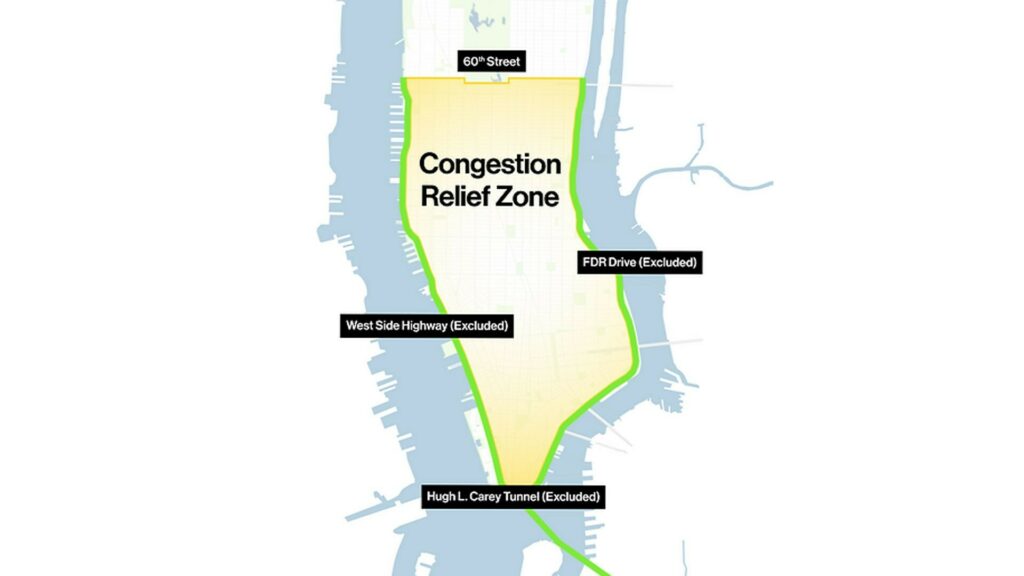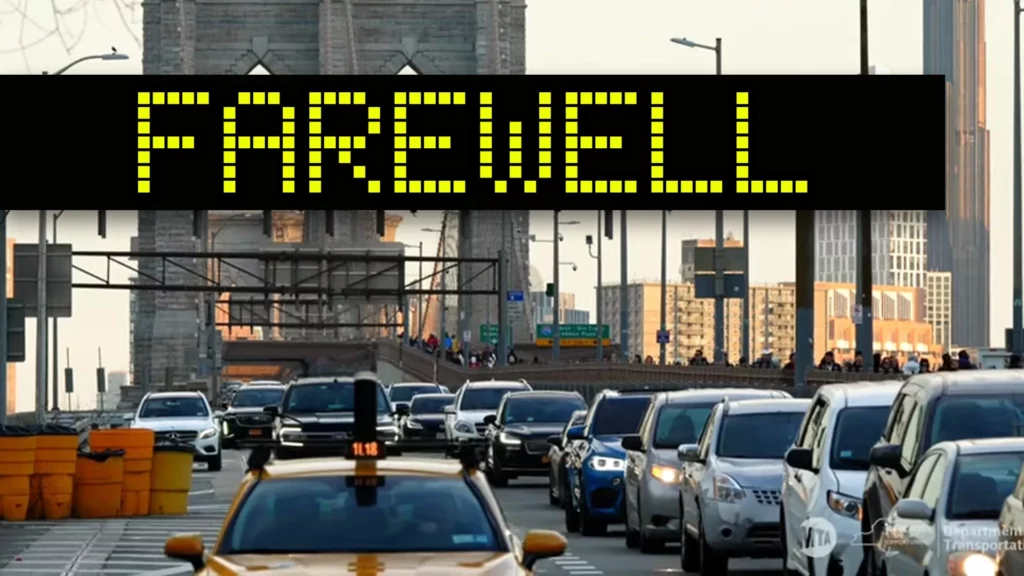- New York Governor Kathy Hochul has indefinitely paused plans for a congestion fee in New York City.
- The congestion charge was slated to go into effect on June 30 and impact nearly everyone entering Midtown and below.
- Fees were set to vary, but passenger vehicles were slated to be charged $15 per day.
New York City’s congestion charge was panned as a convoluted and expensive mess that would negatively impact residents and visitors alike. However, in a rare twist, common sense prevailed.
Yesterday, New York Governor Kathy Hochul addressed the cost of living crisis and noted housing prices have increased by 17%, while the cost of child care has gone up almost 20%. She then pivoted to congestion pricing and noted it was designed for a “pre-pandemic period where workers were in the office five days a week, crime was at record lows, and tourism was at record highs.”
More: NYC Will Charge You $15 To Enter Part Of Manhattan, A First For A U.S. City
Things have changed a lot since then, so Hochul came to the “difficult decision that implementing the planned congestion pricing system risks too many unintended consequences for New Yorkers at this time.” As a result, she directed the Metropolitan Transportation Authority (MTA) to “indefinitely pause the program” as “hard-working New Yorkers are getting hammered on costs.”
She went on to say “a $15 charge may not mean a lot to someone who has the means, but it can break the budget of a working- or middle-class household. It puts the squeeze on the very people who make this city go: the teachers, first responders, small business workers, [and] bodega owners.”

While the congestion fee was slated to raise funds to pay for new projects and enhancements, the governor promised those things would still occur. As she stated, “We remain fully committed to advancing all the improvements that New Yorkers have been promised. That includes immediate investments in reliability and accessibility: track repairs, new signals, [as well as] adding more elevators at subway and commuter stations.”
The move was widely supported as the congestion charge was slated to go into effect on June 30 and impact people traveling below 60th Street. Passenger vehicles and motorcyclists were slated to pay $15 per day to enter the “Congestion Relief Zone,” while trucks and buses would pay $24 or $36 depending on their size. Taxis and “for-hire vehicles” would also be charged per trip, but there would be discounts for certain times and income levels – among other things.




